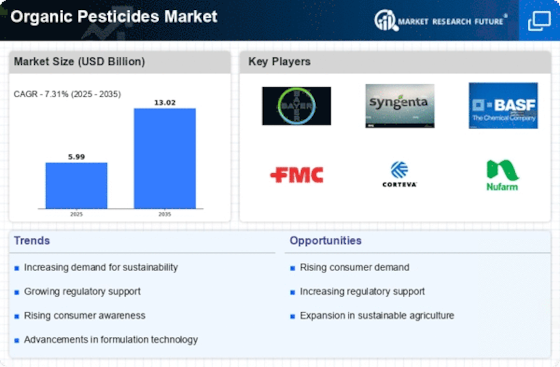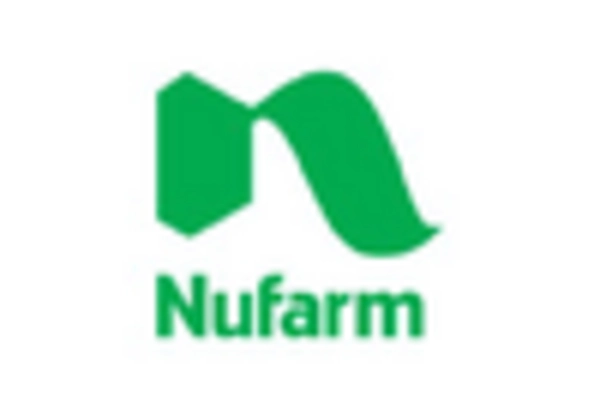Market Analysis
In-depth Analysis of Organic Pesticides Market Industry Landscape
The size of the organic pesticide market depends on various factors that influence its growth trajectory collectively. One such factor driving this market's expansion is the increasing global demand for organic products along with environmentally friendly farming methods. Consequently, rising awareness among consumers about the impact conventional agrochemicals have on the environment and health has increased their desire for natural substitutes like organic ones, which may be used to control pests during crop growth or storage. By 2027, Global Organic Pesticides Market is projected to be worth USD 8,318.6 Million with an expected Compound Annual Growth Rate (CAGR) of 8.4%. Furthermore, the organic pesticide market is also supported by regulatory frameworks and government initiatives that promote organic farming. To encourage organic farming methods, many countries have adopted strict rules limiting the use of synthetic chemicals in agriculture. Consequently, governments provide subsidies and grants to farmers, thereby encouraging the growth of the industry mentioned above. The organic pesticide adoption environment and market expansion are facilitated by industry practices aligned with regulatory standards. Another important factor is an increased awareness among farmers about the environmental and health benefits associated with using organic pesticides. Conventional pesticides have come under scrutiny because of their potential adverse impacts on human health and ecology, causing a shift towards organics by farmers globally. Moreover, the trend towards Integrated Pest Management (IPM) practices has significantly impacted the organic pesticide market size. IPM constitutes a holistic, sustainable pest control approach employing both biological, cultural, mechanical, and targeted insecticide application methodologies. Therefore, considering that this systematic approach seamlessly incorporates biopesticides into IPM strategies, it offers an alternative for controlling pests while leaving less of an environmental footprint than conventional agrochemicals utilized in agricultural production systems. As more farmers around the globe adopt IPM principles, demand for organic pesticides continues to rise, propelling market growth. Moreover, the growth in demand for organic food products has a direct effect on the organic pest control market. The increasing buyer inclination towards organically grown foods that are free from artificial fertilizers pushes farmers to employ organic farming principles and use organic pesticides. Nevertheless, there are some considerations for market growth, such as limited efficacy against some pests and high production costs, among others. In cases of severe infestation by pests, synthetic choices may work better than their organic counterparts; hence, not all organic pesticides have similar efficacy levels. To conclude, a range of factors, including customer preferences towards organic products, regulation support of organic farming, increasing farmer awareness, and adoption of IPM techniques coupled with the expanding market for organic food, determines the size of the Organic Pesticides market.



















Leave a Comment